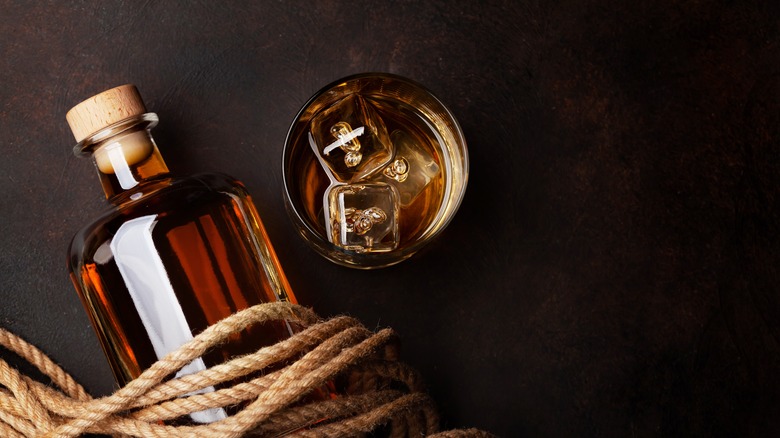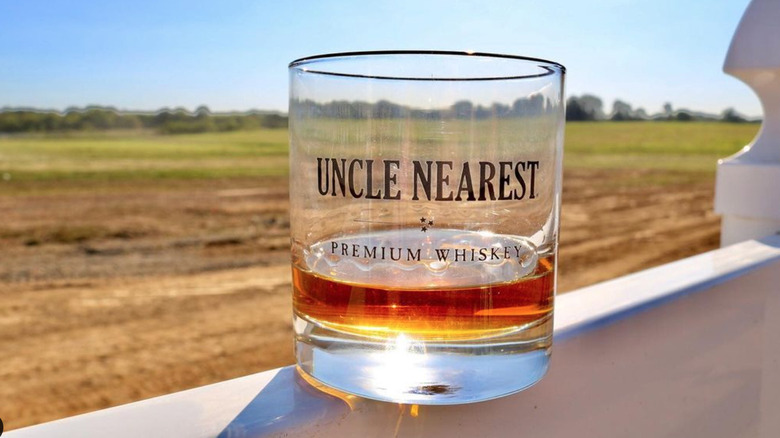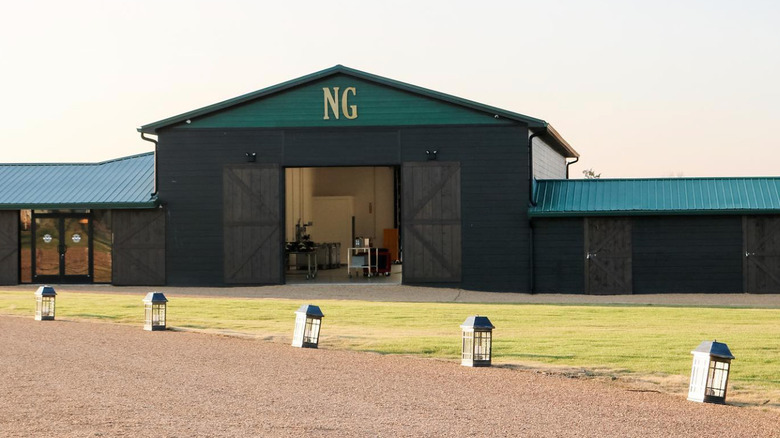Nearest Green: The Forgotten Founder Of Tennessee Whiskey
The concept of American whiskey often links to 1866 and Lynchburg, Tennessee. That's when and where Jack Daniel's, the country's oldest registered whiskey distillery, came to life. Legend has it that Mr. Jack Daniel himself was a youngster who learned whiskey-making while apprenticing under a backwoods preacher, creating the iconic blend that defines what we now call Tennessee whiskey. Tall tales have a way of sticking around, but sometimes a perplexing revelation or simply a willingness to dig deeper tells a more nuanced story.
Meet Nathan "Nearest" Green, a man considered by many to be the forgotten founder of Tennessee whiskey — and for good reason. While the company's official history timeline still mentions Reverend Dan Call as a whiskey teacher to young Daniel, it now gives equal credit to Green, who had yet to be unshackled from the bonds of slavery.
In fact, after slavery became illegal in 1865 under the 13th Amendment to the U.S. Constitution, Daniel established the Jack Daniel's Distillery in Tennessee a year later, then hired Green to be his Master Distiller. It wasn't until 2016, 150 years later, that the company acknowledged the truth.
Slavery's imprint on early Tennessee whiskey
Reverend Call is indeed a big part of the story since he owned the whiskey still where teenage Daniel learned his future trade. But it was an enslaved man on Call's farm who did the teaching. That would be Nearest Green.
Daniel worked on the Call farm doing chores such as milking cows and slopping pigs, eventually gaining the preacher's confidence enough to learn about the farm's whiskey operation. Daniel became an apprentice under Green, who taught him everything about the specific Tennessee whiskey distilling process.
Call split his time between preaching, farming, and distilling, eventually giving up the whiskey business in dedication to spiritual pursuits, consequently selling it to Jack Daniel – who then named Green his head distiller, an honor that's today revered under the title of Master Distiller.
The roots of Tennessee whiskey dig deep into the nation's slave-holding history. Much of early distillery labor came from enslaved people, who also contributed African techniques and recipes. Even after abolition, many former slaves remained in service to former slave owners; in fact, Nearest Green chose to remain on Reverend Call's farm as a free man.
Under the persistence of author and real estate investor Fawn Weaver, Green's historic influence on Tennessee whiskey is getting long-overdue kudos. But it's not just acknowledgment by today's Jack Daniel's owners. His name sits high and proud on the label of a popular Tennessee whiskey and company built specifically to honor his legacy.
Uncle Nearest: the whiskey
It's no surprise that Fawn Weaver, arguably the biggest advocate for the legacy of Nearest Green, is also the force behind the whiskey bearing his name. As CEO of the female-owned Uncle Nearest Premium Whiskey brand, she helms a ship built with all-female leadership, including the first known Black woman Master Whiskey Blender, Victoria Eady Butler.
It just so happens that Butler is also the great-great-granddaughter of Nearest Green himself. The Uncle Nearest moniker comes from the nickname given to him by family and friends in Lincoln County, Tennessee.
The particular distillation method that Green used and perfected is the Lincoln County process, also known as sugar maple charcoal filtering. It's distinct to Tennessee but is widely considered to have originated in West Africa and arrived via victims of the slave trade. It's employed today by Uncle Nearest whiskey and also by the ongoing Jack Daniel's Tennessee Whiskey brand, which specifies that their whiskey is "charcoal mellowed drop by drop through 10 feet of sugar maple charcoal."
Since its launch in 2017, the four ultra-premium whiskeys in the Uncle Nearest collection have stacked up at least 450 industry awards and accolades, all while honoring the memory of the once-overlooked pioneer of Tennessee whiskey, Nearest Green.
It's available in all 50 U.S. states, 12 countries, and from the Nearest Green Distillery that spreads across 323 acres in Shelbyville, Tennessee. The facility is open for distillery tastings, tours, and a full dose of whiskey history — the Tennessee way.


